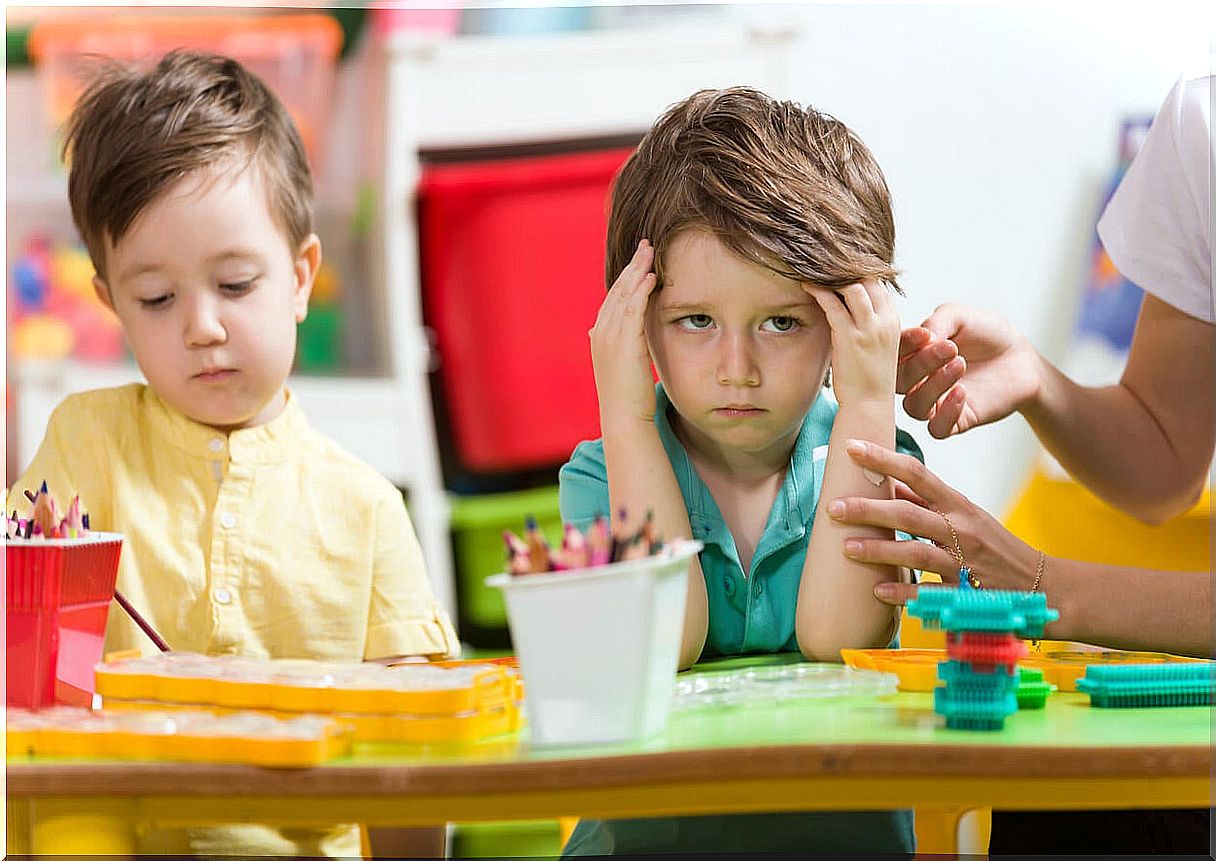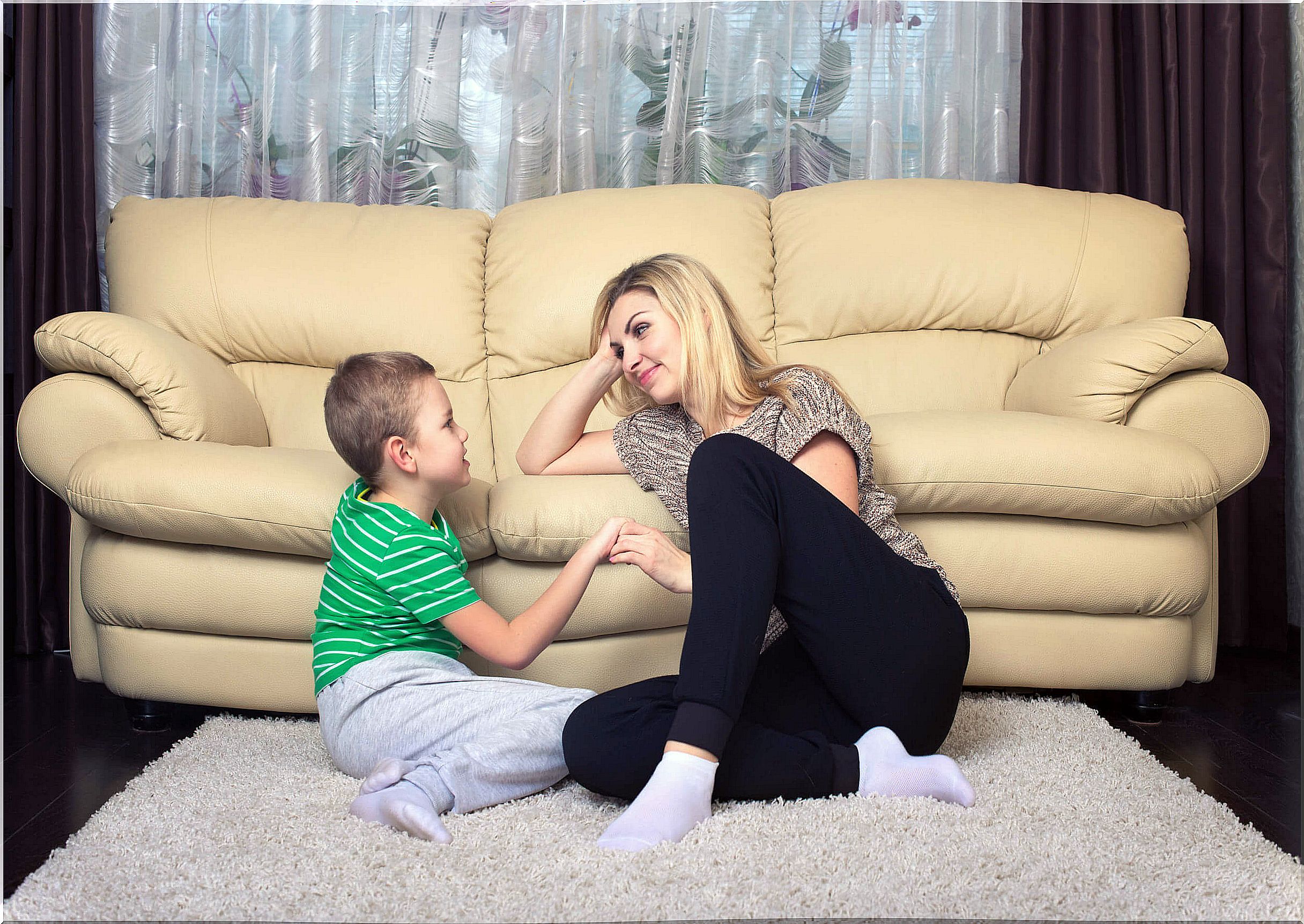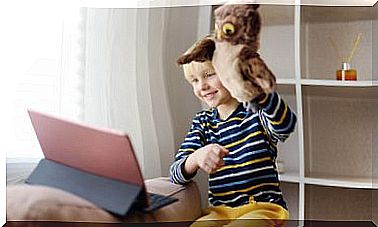Children Who Annoy Others A Lot: What To Do?

Childhood is characterized by freedom, energy, and spontaneity. Children act driven by their impulses and desires, without much regard for how their actions can affect others ; and this is natural. However, if certain limits are exceeded, it can generate rejection in others and have problems in their relationships. For this reason, it is important to know how to guide and set limits to children who bother others a lot.
Childhood egocentricity is part of the developmental process. During the first years of life, the little ones are not able to put themselves in the place of the other or contemplate a different perspective from their own. This can lead to annoying others in order to entertain themselves, get attention, or gain control of the situation. They are not acting evil, they are simply exploring the world and learning to relate, but it is important that adults attend these manifestations.
How to act with children who annoy others?

As we have mentioned, in principle it is not worrying that a child has certain annoying or inconsiderate behaviors. However, if we don’t help him develop empathy and social skills, he can become rude, hurtful, or aggressive. To prevent this from happening, we recommend that you implement the following home education guidelines.
Offer attention and stimulation
Sometimes what happens is not that children tease, but that adults have unrealistic expectations of them. Depending on his age, we cannot expect a boy to remain seated, still and quiet for long periods of time. Your curious and restless mind needs attention and stimulation, and if it is not received, it is more likely to engage in inappropriate behaviors such as yelling, interrupting, or hitting.
Make sure you understand your little one’s needs and meet them where possible. In this way, you do not need to disturb to be seen.
Promote healthy self-esteem
Inadequate self-esteem can lead children to pick on weaker others to reinforce their own confidence. Attacking their siblings or classmates is unacceptable behavior, but it is often motivated by the child’s emotional deficiencies. Thus, strengthening your child’s self-esteem will help him feel valid, valuable and safe and from here he can relate in a healthy and respectful way with others.
Foster empathy
As we have said, children, due to their own maturational process, are not capable of putting themselves naturally in the place of the other, since their perspective is the only one they take into account. However, we adults can help them develop empathy.
If your child is being hostile towards others, let him know how his behavior is affecting others, explain how you are making them feel, and encourage him to think about how he would feel in his place. This simple awareness can help improve your behavior.

Develop social skills
Social skills are essential when interacting with both other children and adults. From basic manners to knowing how to make requests, negotiate or resolve conflicts, these skills help children to function easily and successfully in their interactions. Without them, the infant is much more likely to resort to aggressiveness and inappropriate behavior to achieve his goal.
Set limits
This can help prevent children from bothering others, but if they do, despite everything, it is imperative to set limits. They should know that certain behaviors or comments are unacceptable and that they have consequences. Explaining the reasons and making the rules clear to them will help them follow and understand them.
Children who tease others have social problems
Teaching children to behave appropriately is not only a matter of not bothering others ; for example, that they do not attack other children or do not annoy adults. In addition, it is an important benefit for themselves.
As social beings, enjoying harmonious and satisfying relationships helps us to be healthier and happier, and a child who does not know how to behave will experience rejection from others. Therefore, teach your child to take into account others, to cooperate and negotiate and you will be offering him extremely valuable tools.










